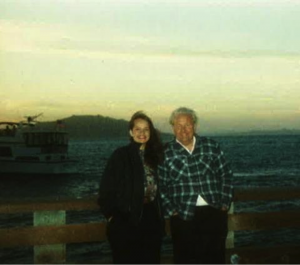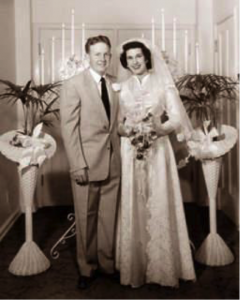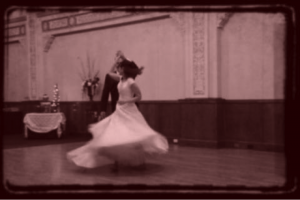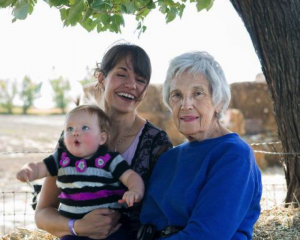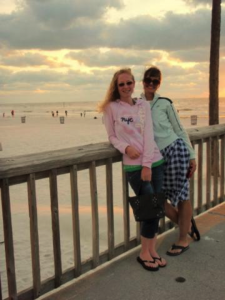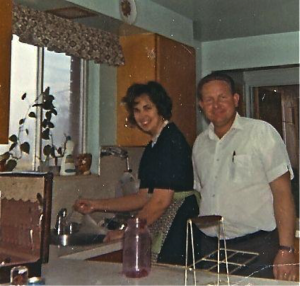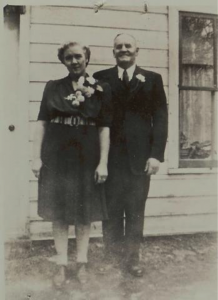Getting Started: Three Procrastination-Busting Tips
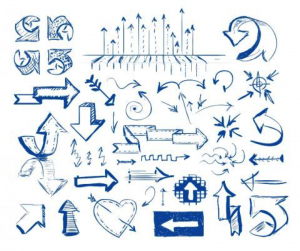
Submitted by admin on Sun, 06/09/2013 – 20:31
Getting Started: Three Procrastination-Busting Tips
I am helping a friend start a big writing project and we recently talked about how she doubted her ability to finish. The negative narrator in her mind rattled off a litany of al the times in her life she had not completed something.
“I know that voice does not have my best interest in mind,” she said. “So why am I afraid to just shut it out?”
We talked about her fears and some of the real obstacles that stood in her way. After our conversation, I got thinking about some of the generous mentors I’ve had in my career who taught me three tools that help me dig out whenever I am mired in procrastination or doubt.
The first tool I learned is a framework for making commitments. This is important because making commitments to others, and especially ourselves is one of the most powerful ways we can set events in motion. Making commitments seems to draw on forces in the universe outside our own abilities, and finishing them gives us confidence. Thing is, though, we start off gung-ho but we’re human, stuff happens and we don’t always do what we say we will do. Then the mind’s nay sayer sees its opening and has a heyday. “You don’t have what it takes. You’re not a finisher. Who do you think you are to take on such a big idea?” Guilt and doubt are destructive demotivators so it’s important to break that cycle quickly. Rather than over analyze why I didn’t make a commitment to myself or anyone else, I have learned to take a breath and go to what we’ll call here “The Commitment Formula.”
The Commitment Formula:
Step 1: Acknowledge it. Own that you made a commitment and that you didn’t live up to it. Simple as that. You don’t have to explain all the reasons, just acknowledge it to the other person or to yourself. Be sincere and humble while you’re at it. Then move on to step 2.
Step 2: Make it right. If breaking the commitment had an impact on someone else, then do what is necessary to make it right. Forgive yourself, clear the energy, and move on to step 3.
Step 3: Recommit. Make the commitment again, or replace it with a new one that is more appropriate for the new reality. Then move on to step 4.
Step 4: Follow through. Do what you said you would do by when you said you would do it. If you don’t live up to that commitment, then keep repeating the cycle until you get it right. Keep your chin up, give yourself a pep talk, and remember that it is worth it to make commitments. Anything in your head that says otherwise is doubt talking. Doubt might have been your companion, but it is not your friend.
The second tool I’ve learned to tackle resistance is how to beat the “but first” trap. You know how it goes, you have something important to do, but first you have to do this one little thing, then one more, then one more. These add up and obliterate the time you have. Sometimes they are legitimate and sometimes they’re just distractions. An example of the legit kind was when, a few years ago I felt it was important to start doing some writing. I had a few “but firsts.” One was that I didn’t know what to write about. I got past that by saying, “Okay, I don’t know what to write about but on this date, I am going to sit down and write whatever is there. If this really does matter, then the inspiration will come in due time but my job right now is just to get started.” So I penciled a date to begin on my calendar. I also felt it was important to clear my physical space, so I spent the week leading up to the date working like a madwoman. I got projects wrapped up at work so I wouldn’t be stressed. I cleaned my house so I wouldn’t be distracted. When the day came I worked out to get my head in a peaceful state. So in short, I got those “but firsts” out of the way. Then the time came to begin and ideas flooded onto my legal pad. An hour later I got the call that my dad had died, and I ended up turning those ideas into a full book of my parents’ story Every Essential Element.
Sometimes, though, the “but firsts” are just mindless distractions: checking email, piddling around on Facebook, or working on tangent projects that seem like a good idea at the time. One discipline I use when I need to concentrate is to turn off all notifications on my cell phone, close my email and decide that I will not get up or glance at any peripheral electronics for the next hour. It’s ridiculous how I start tweaking like an addict to look at my phone after five minutes. What a wake-up call that exercise is. After the hour I’ll allow myself a minute to check in, refill my water bottle or whatever. Then it’s back to work for another chunk of productivity.
The key here is to recognize that I’ve sunk into a wasteful habit and break the cycle before my time window runs out. If not, any inspiration that might have been hanging around will get the hint and move on to where the love is.
A third reason for procrastination is feeling overwhelmed, and the root cause is that a huge project is impossible to tackle all at once. The tool here to “break it down.” I know this sounds like a platitude because it takes mental effort to figure out the next step while avoiding the quicksand of trying to plan out the next year of your life. What I mean is to stop and figure out the very next teeny, tiny step needed to move forward.
As an example, my friend asked how to start organizing all of the supporting documents for her project. Well, in big terms she could say, “how do I digitally capture and organize my husband’s letters, awards and memorabilia?” That makes me tired just thinking about it. Where to start? In this case she moved forward by taking the step of asking my advice for how to begin. Well done. I thought that next, she might ask at her husband’s business if they have a newish copier that will make quick work of scanning these documents into a PDF. If they do, then the next step would be to learn where scanned copies go after you hit the green button, and ask for help to get the process all set up. Then she can save the documents to DropBox or Evernote. Then she might start with one file drawer at a time. She might even hire an assistant to help with the grunt work once her system is in place.
See how we broke this down? I find when I am avoiding a project, I am nearly always stuck not knowing how to begin or because I don’t have the information I need to proceed. For example, perhaps I need to call an expert but I don’t know an expert, let alone have a phone number. So I might realize that my next step is to ask around for leads or maybe do some Internet research. Then it’s important to get on with it before I stall again.
Once I begin, momentum starts working in my favor.
So to recap, the three tools are: 1. Recognize the power of making commitments and rectify any that I have broken. 2. Catch myself when I am caught in a “but first” trap. If the “but first” is important, then get it out of the way and move on but if it is just a distraction then muster up the discipline to focus. 3. Realize when the root cause of procrastination is a blockage in not knowing what to do next. Spend the mental effort to break it down into the smallest step possible. Then get to work and let inertia start working for rather than against the project.
Happy productivity!
